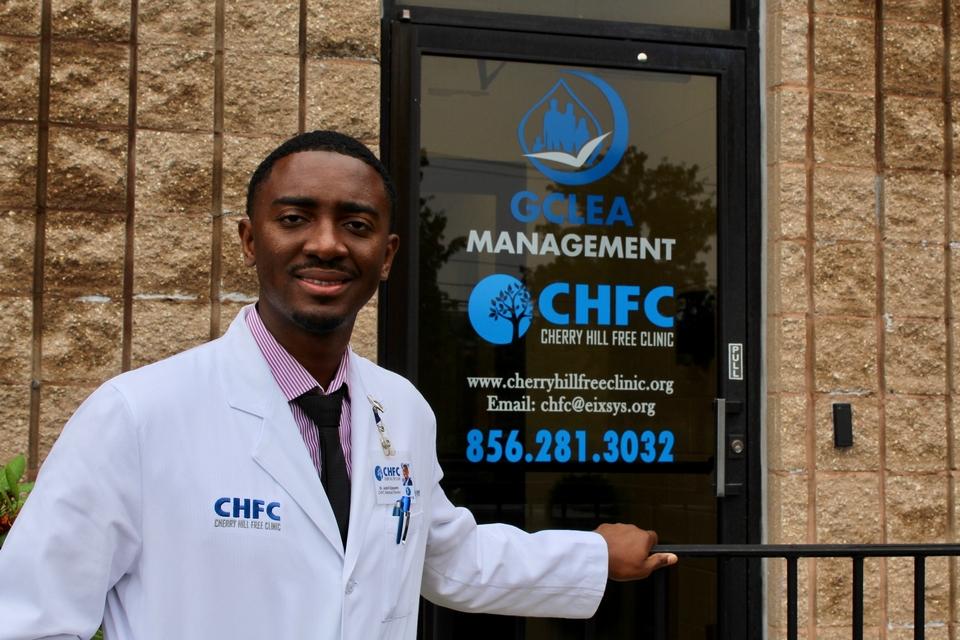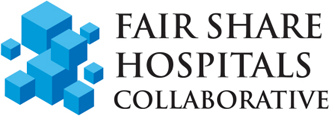Mount Holly doctor runs free clinic for the uninsured

A Mount Holly doctor opened a free health clinic after years of treating patients who avoided going to the doctor because they didn’t have insurance. It just turned two years old.
CHERRY HILL — Thousands of Burlington County residents can’t afford health insurance, and some haven’t been to a doctor or refilled prescriptions in years. But one Mount Holly doctor has spent his weekends trying to remove that barrier for people who need help by running a free health clinic here.
Jubril Oyeyemi, a physician at Mount Holly’s Virtua Memorial Hospital, said he’s seen the struggle firsthand, having worked with at least three patients a week who had been treated once before but ended up in the hospital with the same problem again because they lacked access to affordable medical care.
These experiences inspired Oyeyemi to open the Cherry Hill Free Clinic, one of only a handful in the South Jersey area. Now celebrating its two-year anniversary, Oyeyemi and a team of 30 volunteer doctors and nurses have served about 750 patients and held more than 1,500 appointments on weekends at the clinic, in a small office tucked into a building with a mosque and an aquatics center.
“Every week, I’ve had cases of people like your average neighbor who was working hard, ending back up in the hospital,” said Oyeyemi, who joined Virtua upon finishing a residency in Philadelphia. “Literally, it was things like running out of medications or not being able to pay over $100 to see the doctor.”
A 2016 study by Lourdes Health System found that about 6 percent of Burlington County were uninsured in 2014. About 27 percent of households in the country struggle to afford basic necessities, according to a report on poverty from United Way.
Oyeyemi, who grew up in Nigeria, said he’s seen the dramatic effects of not having access to health care.
“The height of that for me was when my 5-year-old neighbor died suddenly overnight, just because she had a fever,” he said. “The hospital was an hour away, her family couldn’t afford an ambulance and they didn’t have a car. It struck a chord with me at the time, and it’s the reason I went into medicine.”
But even after Oyeyemi moved to Pennsylvania for college and started working in Mount Holly, the issue of accessibility followed him to the U.S., too.
A story of one patient, a woman Oyeyemi called Alice, stuck out to him in particular. Alice had come to the hospital with chest pains, and quickly found out she was having a heart attack. She’d had one once before, but she wasn’t on any medications.
“She said she ran out of medication and couldn’t afford a doctor,” Oyeyemi recalled. “My thought was, that’s crazy. We have to do something about this.”
Cases like Alice’s aren’t uncommon.
John DeNoto, 43, of Pennsauken, said he hadn’t been to a doctor in about 10 years until he found the free clinic through social media. He’d been complaining of foot pain, and finally decided to go to the clinic when he found out the pain was caused by high blood pressure. Without insurance, a trip to a doctor’s office could cost up to $200 for him.
“It’s not cheap, especially when you don’t have insurance,” DeNoto said. “I had no intention to go back to the doctor, so for me to go to a doctor here and come back again, that says something for me, and for the volunteers here, too. It’s a great place.”
DeNoto’s wife, Marney Thomson, said they’re lucky to have found the clinic. Since her husband first visited, she said he’s been taking care of himself more.
While several patients come in for physical exams, Oyeyemi said people also have sought treatment for diabetes, cholesterol, chronic back pain and asthma.
The free clinic is funded by donations from organizations and individuals. Virtua subsidizes lab and radiology services, and donated computers and furniture, spokeswoman Julie Walsh said. The free clinic is also part of Oyeyemi’s mosque, the Gracious Center of Learning and Enrichment Activities, which owns space in the same building and raised about $10,000 to help the clinic buy equipment.
“This means a lot to the Muslim community. Being able to serve the community through this project, it’s at the core of what our faith is about,” Oyeyemi said.
Reflecting on the past two years, Oyeyemi said he’s overwhelmed with gratitude for how his community helped him over the past two years to make the clinic what it is today.
“It’s been a remarkable transformation,” he said. “You really do it for yourself, honestly. It’s incredibly rewarding to help your friends and neighbors. I can’t overstate how much that grounds you. It’s like falling in love with medicine all over again.”
